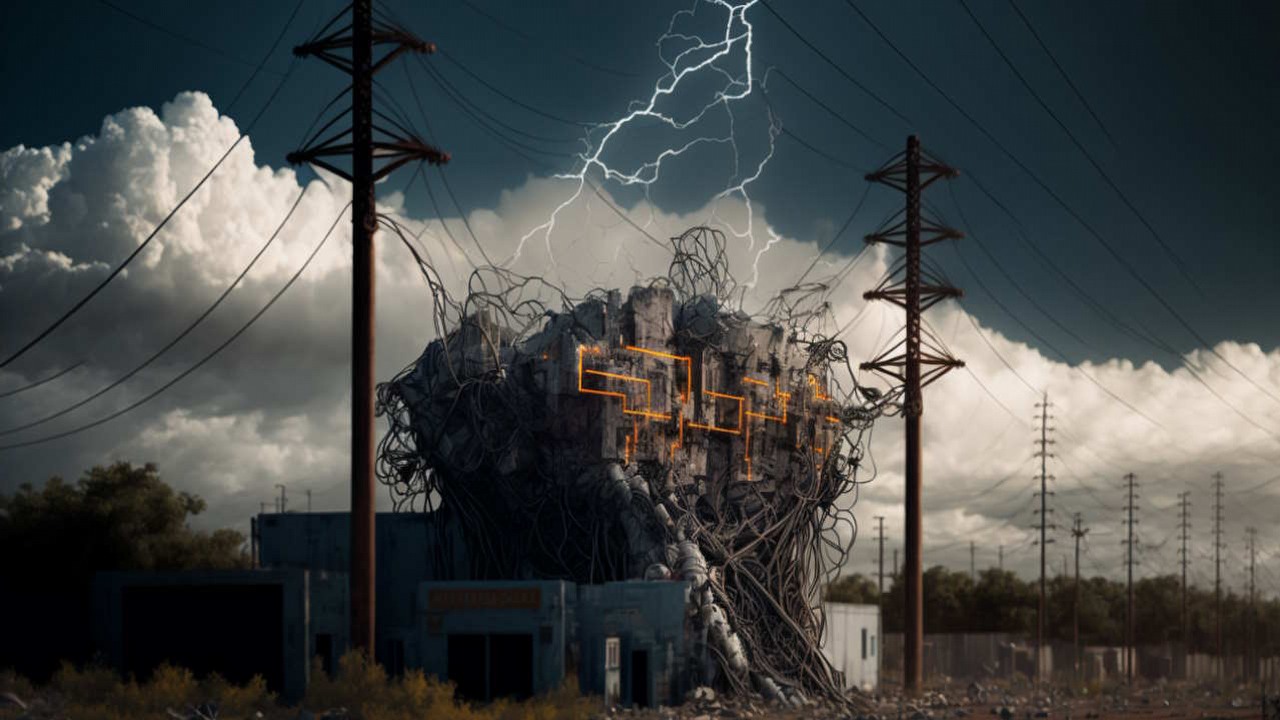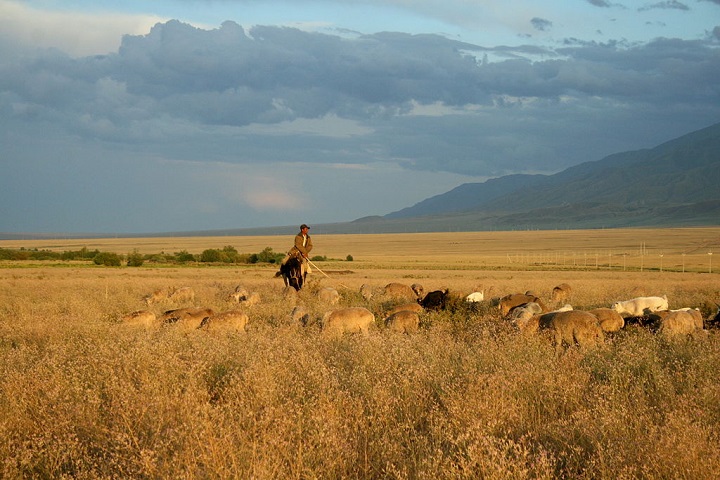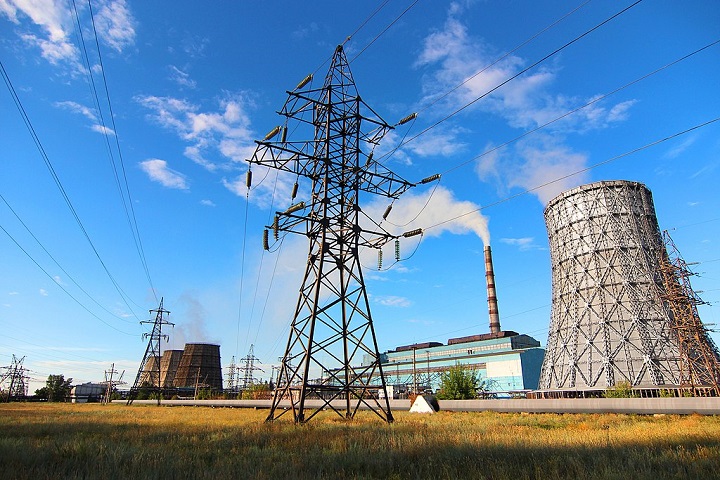Troubles in Crypto Paradise. How Bitcoin Miners Blacked Out Entire Country
Ever since cryptocurrency mining led to the largest-ever power grid failure in Central Asian countries, the once-enthusiastic governments there have looked at crypto miners with an increasingly less favorable attitude.
2

Exactly twelve months ago, much of Central Asia was caught in its tracks. Due to a gigantic failure of the power grid connecting large parts of Kazakhstan, Kyrgyzstan and Uzbekistan, many regions of these countries lost electricity. Traffic lights stopped working, subway trains got stuck in tunnels, skiers on ski lifts near Bishkek, Kyrgyzstan, became stranded several meters above the ground, air traffic stopped, heating and gas, so vital in the brutal steppe frost, failed in many places. This dire situation prevailed for several hours, leaving millions of people without access to electric power. The Kyrgyz authorities described it as unprecedented since the region gained independence from the Soviet Union in the early 1990s.
But hold on a minute – perhaps blackout in countries of the Eurasian Steppe is not something you would expect to read about on a gaming website. The thing is that the mentioned problems of Central Asia – in particular Kazakhstan – are inextricably linked to cryptocurrency mining, most notably of bitcoins. This was a pronounced warning against technology praised by its proponents as a vehicle of independence and decentralization of money can endanger not only the fortunes of those involved in its trade, but also the most basic services on which the health and safety of residents of developing countries and beyond depend.

Escape from the Middle Kingdom
But the whole story doesn't begin in Kazakhstan, Kyrgyzstan nor Uzbekistan, but east of them, in China. Three years ago, about 65% of bitcoins were mined there. But since Chinese authorities are pretty obsessed with total control over every aspect of public life and national economy, digital money without central supervision was a big no-no for Beijing. That was the case for a long time: the Chinese Communist Party has been trying to limit the rise in popularity of crypto for a good decade, and it was only able to ban transactions involving all cryptocurrencies and their mining in 2021. The official reason was concern for the country's financial stability and monetary sovereignty.
China's hit with crypto mining has had an additional, negative effect: these resource-intensive operations have largely moved to countries where energy production is even less environmentally friendly than in China. According to one research, in August 2021, only 25% of operations used renewable sources, a drop of more than 15% compared to just twelve months earlier, before the Chinese ban. China may not have the reputation of a global leader in the fight for a greener future, but it currently produces about 30% of its energy based on renewable sources – mainly hydroelectric power. Moving to Kazakhstan, which is primarily dependent on coal, and Texas, postly powered by gas, has only increased emissions related to mining cryptocurrencies – to the point where bitcoin alone now has a carbon footprint of more than 65 megatons of CO2 per year. This is more than the entirety of carbon footprint of some large, developed economies such as Greece, Sweden or Singapore.
Chinese miners suddenly had to find alternative locations for their operations. They didn't have to look far: their neighbor from the west openly invited them to do just that.
We have introduced laws that will allow Kazakhstan to become one of the international data processing and storage centers. Last year alone, we attracted investments related to digital mining, worth over 80 billion tenge (approx. $190 million at the time). But we cannot stop here; we should lure the digital giants of the world to our country. Otherwise, other countries will do it. We need to increase investments in this industry to 500 billion tenge (approx. $1.2 billion) over the next five years.
Address to the people of the President of Kazakhstan Kasym-Zomart Tokayev, September 2020
The largest country in Central Asia could seem like a paradise to cryptocurrency miners. It is a very sparsely populated country: despite being the ninth largest country in the world in terms of area, it's inhabited by less than twenty million people, which is less than Beijing alone. There are plenty of derelict, post-Soviet, industrial-size buildings, providing the perfect locations for bitcoin mining; the government did not bother to regulate this business, and the cold winters are perfect for more efficient cooling of the halls of resource-hungry hardware. Above all, however, Kazakhstan abounded in cheap, easily accessible energy, provided by coal power plants. The country had already been a popular destination for bitcoin mining operations beforehand, but with the Chinese ban, the real frenzy ensued. According to Financial Times data (see: sources), almost 88,000 "mines" were physically transfered from China over the western border in a matter of weeks. Kazakhstan suddenly became the second largest power in the cryptocurrency biz. And it didn't take long for the country to regret it.
Warm homes, or cool PCs?
The demand for electricity began to grow at an alarming rate – by over 7% year on year. The country's outdated power grid, which still heavily relies on post-Soviet infrastructure, was almost completely unprepared. When the heating season began in autumn, the system's shortcomings were suddenly exposed. Local power outages became more and more frequent and severe, because in the last months of the year, temperatures in Kazakhstan, especially in the north, regularly drop to several degrees below 30F.

The authorities, welcoming cryptocurrency miners with open arms just over a year earlier, changed the narrative. The Minister of Energy openly accused the "miners" of having contributed to this crisis. The accusations were followed by action: in November, KEGOC, the state-owned operator of the Kazakh power grid, announced power rationing for registered operations and warned that in the event of any shortage, these would be cut off first to relieve the system – without a word of warning. And it's not surprising, really, since some of the largest cryptocurrency mining facilities were reportedly able to consume several times more energy than the cities near which they operated.
With the beginning of 2022, came taxes – one tenge (about a quarter of a cent) for each kilowatt-hour used for "mining." These regulations hit mainly the officially registered operations, bypassing a wide group of miners operating in the gray area of economy. But it was only the beginning of a bad month for both the crypto business and the whole of Kazakhstan. Already on January 2, mass protests ignited in the country, caused by a sharp increase in gas prices. Over 200 people were killed and nearly 10,000 arrested during the ten-day clashes with riot police. In order to make it difficult for demonstrators to communicate with each other and to keep the affair largely insulated from international attention, the authorities also introduced a blockade of the Internet – and this move hit the miners the hardest. During a total of 100 hours of Kazakhstan being cut off from the Web, cryptocurrency mining companies lost around $20 million.
Until finally, January 25 came. The day before the gigantic outage, registered miners were informed that they would be disconnected from the grid until the end of that month to stabilize the system – but this was done too late to prevent the overload. Traffic lights stopped working, planes were grounded at airports, heating was cut off. More than 450 people became trapped in subway tunnels. It took several hours for the power grid to be restored, meanwhile at least 5 million people in three countries were without power. The blackout affected the capitals of Kyrgyzstan (Bishkek) and Uzbekistan (Tashkent), as well as the most populous city of Kazakhstan (Almaty).
Parasitic business
Fortunately, the blackout did not cause any deaths, didn't rekindle the protests in Kazakhstan, nor did it lead the economy of Central Asia to collapse. However, it was the most glaring example of the price that the entire region had to pay for one country's disorganized pursuit of becoming a cryptocurrency powerhouse. Especially since their extraction did not generate whopping profits to the Kazakhstan's budget, did not particularly help in the digitization of the state, and did not create new jobs. In its article, the MIT Technology Review (see: sources) quotes the words of Pete Howson, assistant professor at the Northumbria University:
„[Crypto operations – ed. note] will move around to where there is a willing host, until they’ve taken everything they’ve needed, and then they’ll move on."
After the January 25 blackout, Kazakh legislators probably understood this, as in February they proposed that taxes for registered cryptocurrency mining operations be increased tenfold.

In retrospect, it's hard to blame what happened a year ago on miners alone. They just took advantage of the invitation. Besides, their sudden influx to Kazakhstan would not have had such severe effects if the largest country of Central Asia would have modernized its power grid and if it did literally anything to curb illegal mining. And above all: it shouldn't have allowed this industry to start sucking up state resources on a gigantic scale almost overnight. The thing is that Kazakhstan was the perfect place to create a cryptocurrency business: an inert political system, widespread corruption, cheap energy, low taxes... Miners could reasonably expect that the regulations would not reach them quickly, and it probably would have been so – if not for the sheer scale of the impact they had in a short time.
And when the market finally turned from bull's to bear's, most of the strongest players simply moved once again. There's no shortage of alternative locations, although none of them will likely provide such a paradise as Kazakhstan in the first months of its crypto craze: many African and other Central Asian countries regularly experience political turbulence, while in the United States, the costs of maintaining operations are much higher. Some "miners" even return to China, although it is a risky endeavor.
And Kazakhstan? After several months of cryptocurrency extravaganza, culminating in the biggest outage since independence from the Soviet Union, authorities of China have targeted illegal operations and continue to ration power access to large, registered establishments. The biggest players have mostly moved out, while smaller fish from the gray economy are abandoning their business or trying to stay under the radar. They cannot dream of moving to greener pastures. In just a dozen or so months, Kazakhstan cured its obsession with cryptocurrencies and today suggests miners to leave through the same door they came in.
The person to leave turns the light off.
Key sources:
- GM Volpicelli, "Wired" – China's Sweeping Cryptocurrency Ban Was Inevitable
- N. Bisenov, M. Tobin, "Rest of World" – How crypto mining went from boom to bust in Kazakhstan
- P. Guest, "MIT Technology Review" – Bitcoin mining was booming in Kazakhstan. Then it was gone
- "Financial Times" – Crypto miners in Kazakhstan face bitter winter of power cuts
- CoinShares – The Bitcoin Mining Network Report
2

Author: Jakub Mirowski
Associated with Gamepressure.com since 2012: he worked in news, editorials, columns, technology, and tvgry departments. Currently specializes in ambitious topics. Wrote both reviews of three installments of the FIFA series, and an article about a low-tech African refrigerator. Apart from GRYOnline.pl, his articles on refugees, migration, and climate change were published in, among others, Krytyka Polityczna, OKO.press, and Nowa Europa Wschodnia. When it comes to games, his scope of interest is a bit more narrow and is limited to whatever FromSoftware throws out, the more intriguing indie games and party-type titles.
Latest News
- End of remote work and 60 hours a week. Demo of Naughty Dog's new game was born amid a crunch atmosphere
- She's the new Lara Croft, but she still lives in fear. Trauma after Perfect Dark changed the actress' approach to the industry
- „A lot has become lost in translation.” Swen Vincke suggests that the scandal surrounding Divinity is a big misunderstanding
- Stuck in development limbo for years, ARK 2 is now planned for 2028
- Few people know about it, but it's an RPG mixing Dark Souls and NieR that has received excellent reviews on Steam, and its first DLC will be released soon

